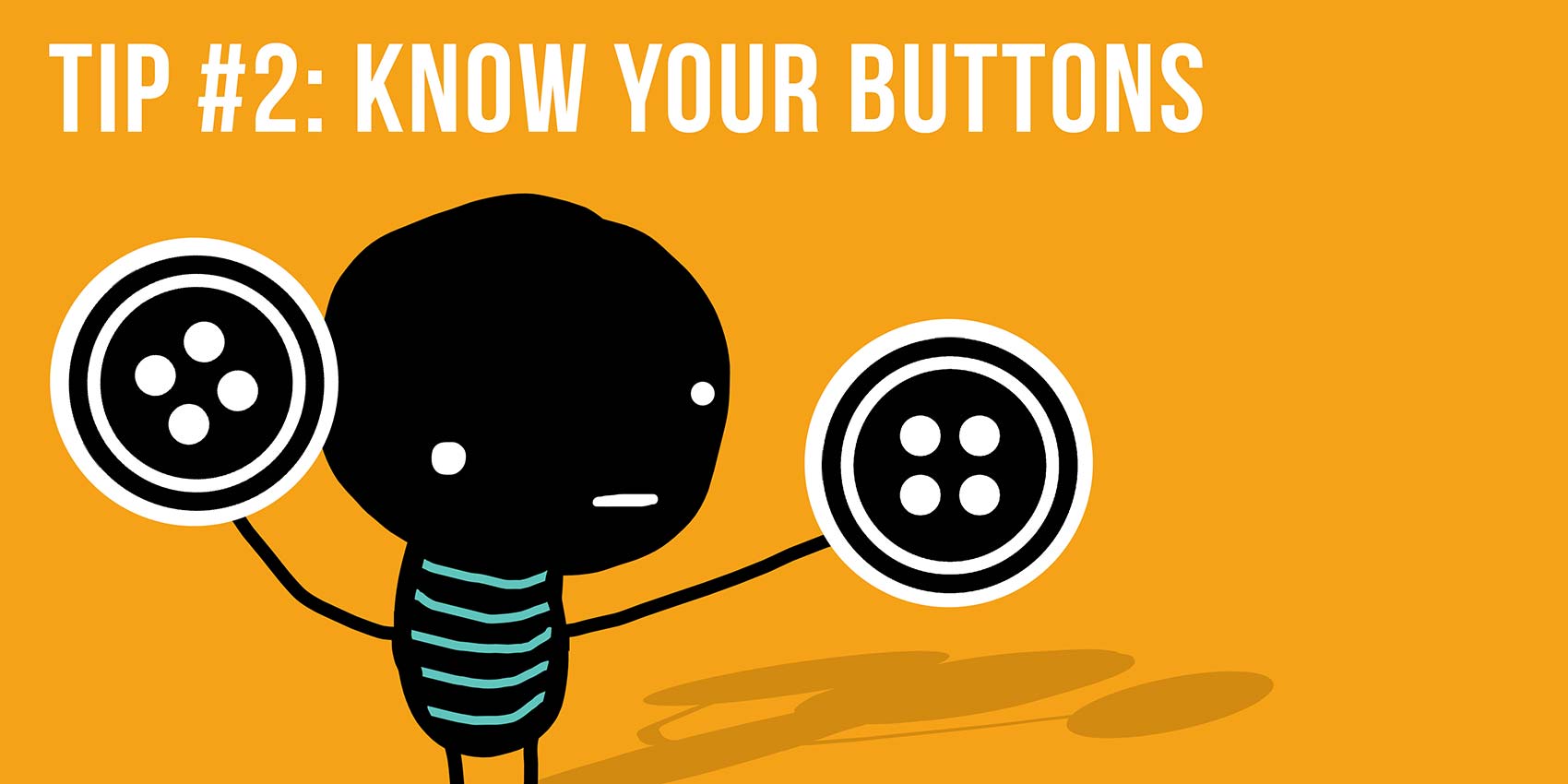18 Apr Tip 2: Know your buttons

What is a button? Well, of course you know the button that is on your sweater and you are familiar with the buttons that you press on your phone or computer, but that’s not what the focus of this post is.
In the world of getting to know your self, buttons are like “hot spots” that people can touch (figuratively, but not literally) that make you particularly mad or insecure (meaning uncertain, or worried) or scared or whatever you may feel when someone irritates you. Buttons are areas in your life that can “set you off.” They are topics or words or events to which you are sensitive but other people might not be. Pretty much everyone has a button or two or three or five.
Here’s an example:
If you hate it, really hate it, (super duper, might pop a gasket, flip a switch, go totally crazy kind of hate) when people don’t call when they say they will, that is a “button” for you. So when people don’t call you (when they say they would), they are “pushing your button.”
You get angry and annoyed, maybe even hurt, when the person doesn’t call. But why? Your friend, Jane, has no problem when someone forgets to call. But for you, well, it sends you into hyperspace.
What’s up? Maybe you feel a bit rejected? A little abandoned? When you were little did Mom say she would call or be there on time and then she didn’t? Did Dad say he would take you to the big game time and time again but then he just disappointed you? If this was the case, then you might end up feeling like you can’t trust people to do what they said they would. So any event in your life that triggers the feelings of disappointment and a lack of trust will be a “button.”
(Remember that this is just an example, but these buttons usually stem from some previous experience/s.)
When you figure out your buttons and from where they came, then you can control them rather than let them control you.
For example, you may think:
Ugh, Sally didn’t call me again when she said she would. Oh, wait, that’s a button for me. I’m going to ask her why before I get really upset. Just because she didn’t call doesn’t mean that she doesn’t like me. Then when I hear what she has to say, I’m going to let her know that it bugs me when she says she’s going to call and she doesn’t. That way, maybe she’ll be more careful while I try to be less sensitive.
If Sally is a good friend, then hopefully she’ll be more careful. But she might not be. Sally might just be an airhead about those things and if that’s the case, you can learn that her missed calls are about her and not about you (you won’t take it personally!). Telling Sally how you feel and talking yourself through the situation is an adaptive response to your button. What does adaptive mean? Well, That’s another post… if you need another example of a button, head to the next post. If you understand the concept of buttons already, skip it and head to the second post covering adaptive and maladaptive responses.




corina
Posted at 05:13h, 16 Aprilfor someone to push my button i would find it hard for me to show. but if you constantly lie to me that would tick me off and bother me but if you would say something negative on how i looked it wouldn’t really affect me.
WLKHS2214
Posted at 22:57h, 26 MarchI have multiple buttons, but my top button would be fake people or people that say one thing and do another.
wlkhs2211
Posted at 15:25h, 08 MarchMy button is my height because i feel like I’m short compared to others.